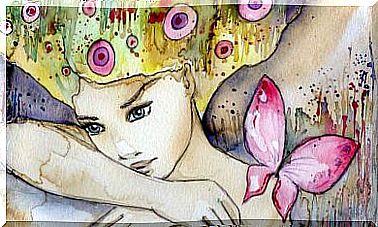What You Deny Commits You; What You Accept Transforms It

Many people who go to a psychologist want to change their situation of permanent distress without changing themselves. A large part of the initial resistance to treatment is due to the fear of accepting what is really happening to them. A curious thing, because the most successful changes accurately recognize the starting point.
Many people overvalue what they are not and underestimate what they are. A large part of their pain is caused by how they rate themselves. In turn, they believe that pain can make people susceptible and belligerent.
Our interpretations of our emotional reactions cause us to suffer and conflict with ourselves. Ultimately, we are the cause, or at least the “accomplices”, of our own pain.

Choosing to take an attitude of resistance often prevents us from understanding that the cause of suffering has nothing to do with the fact itself, but with our reaction to it. People who resist change hope that in the future problems will resolve themselves, without us taking a proactive approach. They expect to be rewarded in some way without changing any of the behaviors that created the problem.
Peace comes from within, don’t look outside
Many patients focus their complaints on external factors that we cannot control. A large part of our suffering is born and maintained by being too fixated on unfair situations over which we have no control.
When we are unable to control our own moods, we blame others for our emotional distress. When we focus on others, we leave our emotions in their hands.

No one would consciously hand over control of their emotions into someone else’s hands because it has to do with our essence, with our inner self. However, we get frustrated when someone doesn’t live up to the expectations we had of him. Teaching how to deal with pressures and frustrations is a fundamental aspect of the individual’s mental dynamics, and this work manages to make the patient accept their situation and, at the same time, develop their ability to intervene in it.
Interior changes precede exterior changes
When our beliefs are compared with other people’s beliefs or with circumstances that are different from our way of looking at things, we can experience recurrent psychological distress. Initiating a process of personal change will help to focus on ourselves, it will take us away from victimism, indignation and resignation.
Being honest with yourself can be very painful at first, but in the medium term it’s very liberating. This allows us to face the truth about who we really are and how we relate to our inner world. In fact, we are the only ones capable of upsetting ourselves.

Only we ourselves have the power to hurt ourselves. Despite being waged in our own minds, this illusory personal war provokes a series of emotional charges such as guilt, bitterness, resentment, hatred, punishment and the desire for revenge. All these emotions come to the office for therapy, often disguised as conflicts with others.
These emotions are the result of exaggerated and external interpretations of some facts and emotions that occurred in the past. The problem arises when these past events condition our network of relationships in the present and prevent us from moving forward. When you accept the past, you can live in the present.









